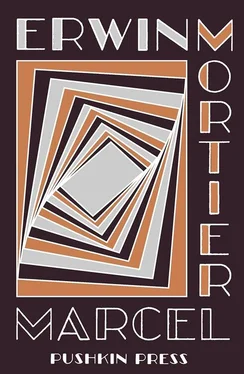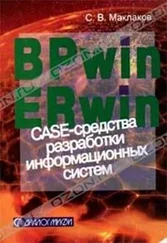“Someone ought to tell him to take off his bicycle clips,” the grandmother remarked with a sigh each time he swanned up to the altar for an oblation, flashing white calves and ankles.
He never missed a mass for the dead. No one could snivel the way he did. It was a brief homage, no more. After the service there would be the meal with the mourners, and the wine. One day it was his turn to be mourned. The bells in the abbey tower tolled a sonorous knell. “He brought a spirit of generosity to our monastery,” intoned the abbot, visibly relieved to be rid of the smell of alcohol.
*
When all the pictures had been properly dusted the grandmother closed the glass wings of her cabinet. She had reflected, reassessed and rearranged. She had piled proof upon proof, for and against Death, who was both her enemy and her most loyal ally. Death robbed her of her relatives, but he also fixed them in still poses ensuring that they would meekly undergo her domestic ministrations.
When I saw my face reflected in the glass it was a fleeting glimpse, with far less substance than the images of the dear departed. Especially when, every few months, Stella and the grandmother, in a fit of nostalgia, ransacked drawers and cupboards for still more photographs. In no time the table would be thickly carpeted with pictures in which the past jostled indiscriminately with the present. One showed a coffin emerging from the green front door. In another, boys wearing clogs and girls with ribbons in their hair frolicked on the same doorstep. Here the season’s first asparagus was being harvested, there a trench in the war-torn orchard was being filled by a shadowy figure with a shovel.
The house, having detached itself from the world at large, became the repository of all those albums. In the midst of all the snapshots, I could easily imagine slipping out of that dark front door, down the well-worn path in the grass, past the blood-red garden fence into the orchard, where apples dropped like hand grenades from the branches, the same branches that were draped in blossomy parachutes in spring.
My own likeness cropped up regularly in that profusion of images. Me being lifted out of a baby bath by my mother. My mother holding my arms while I try to walk unsteadily across the floor — stark-naked, not yet a year old, three decades younger than the faded yellow curtains on the window overlooking the back yard. I began to read an obfuscated sadness into the palm-frond wallpaper, stained with time. Our first fridge must be humming somewhere out of the picture.
Those snapshots would have been taken by my father. Perhaps he had leaned back against the marble sill just visible under the dusty net curtains, waiting for me to look up at him and smile.
The flash used to startle me, Stella said, just as it had startled my great-grandparents. They lay at opposite ends of the table, their eyes not lowered like my mother’s, for they stared fixedly into the lens with unconcealed suspicion.
They wore their Sunday best for their respective portraits taken when they were aged about eighteen. They did so again on the day of their engagement, when they posed together for a studio photograph against a backdrop of cardboard columns and leafy boughs. Their peasant pride sat uncomfortably with the Arcadian setting — hazier now, after a century, and dull in places.
Sixty years later and on their last legs they face the camera again, as stiffly as ever, to bear witness to their eldest great-grandchild’s first steps. Just as vulnerable, just as bereft of the underpinnings of language, they strain to assume an appropriate expression, strike the right attitude, put on the proper airs. Their dignified stance reminds me of starched bedlinen and locked wardrobes.
At some point in their lives, between the Arcadian props and the crutches, my great-grandparents pose for a picture on either side of Marcel. He is about sixteen years old, an acne-ridden teenager in plus fours. One raised hand shades his eyes from the sun, which has half obliterated him already.
ON FRIDAYS AFTER SCHOOL I USUALLY HUNG AROUND in the attic or skulked in one of the rooms, bored stiff. Until the peal of Miss Veegaete’s laughter made me jump to my feet. Twice a year she ordered a new frock from the grandmother.
The blinds were half lowered. On Fridays the grandmother’s abode was transformed into a dimly lit palace, a dusky, formal venue for mysterious conclaves.
It was usually Stella who answered the door. She would be wearing one of her tight, unflattering blouses so as to “look nice for the clientele”, as well as sparkly earrings and high-heeled shoes. Her heels would beat a nervous tattoo from the front door down the echoing passage, taking in the kitchen on her way to the sewing room where the grandmother held court. She became a girl again, dressing up in her mother’s clothes, putting too much rouge on her cheeks. On Fridays she made her topknot even taller, like an Indian temple, but the effect was spoilt by her stern round spectacles.
The grandmother was ready to receive her callers. She had made a display of fashion magazines, pattern books and squares of soft fabric on the table by the big window facing north, for daylight cannot tell a lie. It made no difference whether it was summer or winter. Miss Veegaete ordered her light dress in the dead of winter, and it would be midsummer when she called to discuss her autumn requirements.
The arcane manipulations that took place in the sewing room were not intended for Miss Veegaete’s eyes. She was shielded from the sight of the wasps’ nest of pins, the snakepit of limp zip fasteners in the drawer, the little boxes overflowing with enamel and mother-of-pearl buttons on the high shelves. At the end of each working day the snippets of dress material and tangled threads lying in frivolous anarchy on the floor were swept into a heap for the rag-and-bone man. Clients were admitted to the sewing room only to have their measurements taken. They would be offered magazines to leaf through, which then gave them the illusion of knowing what they wanted. But it was the grandmother who knew what they wanted. She dazzled her ladies with the sheer variety and glamour of the designs. She reeled off the names of fabrics like prayers, muttering things about the potential for pleats or the merits of cutting on the bias until the client got confused and asked: “Would that suit me, do you think?”
“We’ll see what we can do. Stella my dear, why don’t you brew us a good pot of coffee. And we’d like some cake, too. Madame and I have things to discuss.”
Each Friday, in a ceremony that was repeated three or four times, the expensive gold-rimmed coffee service would progress from the glass cabinet to the large tray shivering in Stella’s skinny hands, from the tray to the coffee table, and from the coffee table to the kitchen where the cups were washed before returning to the cabinet. The removal of all the stage-props, followed by their reappearance for the benefit of a fresh audience, took place every hour or so. Each visitor in turn was made a fuss of. Stella’s occasional disparaging remarks would earn her a lecture.
“As far as I am concerned,” the grandmother said, “every single client, even the simplest farmer’s wife, is a duchess, a baroness in her own right. They all want something special. Imagine the scene if they met here by accident! They’d be bound to think I was copying the same garment, not creating custom-made fashion.”
“I’ll go and wash the dishes,” Stella said gruffly. As the afternoon wore on she kept fiddling with her earrings. “They don’t half itch when you get sweaty.”
*
The serving of coffee was supposed to soften the embattled client until she was putty in the hands of her hostesses. The grandmother pretended to think long and hard, although she knew exactly which bolts from Maurice’s shop she kept stored in her attic.
Читать дальше












